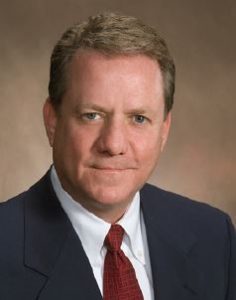After wrapping up our annual meeting and hosting important leaders like New Mexico Governor Michelle Lujan Grisham, Texas Governor Greg Abbott, former Speaker Tom Craddick, and Chairman Drew Darby, we have to thank all of those involved in participating and making it such a grand success.
Our sponsors, registrants, and panelists were part of something we would never have envisioned at the beginning of this year, but adjusting how we can be effective in light of changing circumstances has always been a trademark of our members and our association.
While we traded speakers in banquet rooms to presenters on video conferences and traded relying on networking events to relying on internet networks, we provided our members a first class event of speakers and perspectives that are always expected of our Annual Meeting.
But the work continues on a host of important issues, including the very real efforts in Texas and New Mexico to address the large and looming concerns of air and emissions by legislators and regulators.
In New Mexico, PBPA has been hard at work preparing line by line responses to the two rules from the New Mexico Environment Department as well as the Oil Conservation Division in order to ensure that we are on the record on our members’ behalf, expressing the very real concerns that exist in this rulemaking.
The cost of the proposal to operators and to the state will be great as they exist today. Our goal is to ensure meaningful rulemaking that considers the economics at hand. These costs could fundamentally alter how the industry operates and the jobs it is able to create, as well as whether people will choose to invest and continue to expand the number of small operators in our region.
Both the cost to operators and the cost of enforcement are important to consider. We want to make sure that the agencies understand whether or not they have the personnel ready to implement these changes. While we will obviously work to comply with the regulatory framework created in any state or region, we rely on the agencies to have the personnel and expertise to be able to efficiently process applications and permits for operators.
Further, because of the relationships we have been able to cultivate, I was invited to join agency heads on a panel discussion for the New Mexico Legislative Finance Committee in Santa Fe to specifically discuss our concerns and optimism in working with the regulators in New Mexico.
Our efforts are also evident in the Lone Star State, where our expansive relationships have afforded us the opportunity to visit with TCEQ Commissioners regularly to discuss their efforts to regulate the industry, including their upcoming rulemaking regarding their “Penalty Policy” and “Compliance History” rules. The agency is clear that it wants to increase the penalties across the board for operators as well as establish a clearer method of determining whether or not the history of operators reflect a commitment or disregard to compliance. The agency is also preparing to roll out a “fix and find” process so that operators can determine where they need permitting or additional permits for their operations to be in compliance in the Permian Basin.
As is the case for both of these rules “the devil is in the details” and we are focused on ensuring that agencies in both states hear from us to ensure that these rules are clear, consistent, and not overreaching. Please let us know if you would like more information about these efforts or if you would like to join us.










